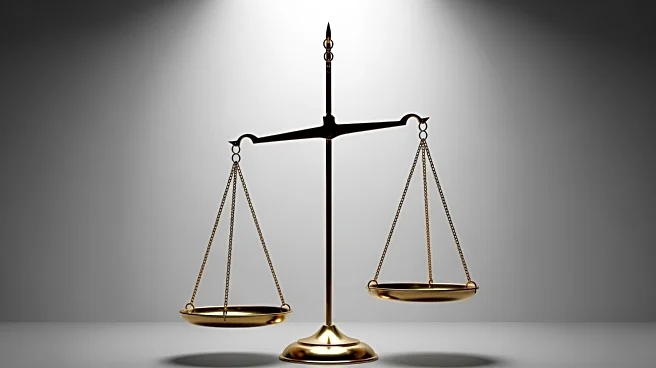What's Happening?
The Supreme Court has permitted President Trump to withhold approximately $4 billion in funding for the Supplemental Nutrition Assistance Program (SNAP), impacting 42 million low-income Americans. This
decision follows an appeal by the Trump Administration against a federal judge's order to fully fund the program. Previously, the administration agreed to partially fund SNAP using $5 billion from a contingency fund but objected to providing an additional $4 billion. Justice Ketanji Brown Jackson's order allows more time for a lower court to consider the administration's request for partial funding. The lapse in benefits has left many recipients reliant on food banks, marking the first time in the program's 60-year history that benefits have lapsed.
Why It's Important?
The Supreme Court's decision to allow the freeze on SNAP funding has significant implications for millions of Americans who depend on food aid. Most beneficiaries are low-income families, seniors, and people with disabilities, who now face uncertainty and potential food insecurity. The SNAP program has become a political bargaining chip amid the ongoing government shutdown, which has stalled due to disagreements over extending Affordable Care Act subsidies. The decision highlights the intersection of judicial rulings and political negotiations, affecting public policy and the welfare of vulnerable populations.
What's Next?
The legal battle over SNAP funding is expected to continue, with the lower court reviewing the administration's request for partial funding. States like New York, New Jersey, and Massachusetts have already issued full SNAP payments for November, following a memo from the USDA. The ongoing government shutdown and political negotiations may further influence the resolution of SNAP funding and other related programs. Stakeholders, including political leaders and civil society groups, are likely to react to the Supreme Court's decision and its impact on public welfare.
Beyond the Headlines
The freeze on SNAP funding raises ethical concerns about the use of essential aid programs as political leverage. The decision underscores the broader debate over the role of government in providing social safety nets and the potential consequences of political decisions on vulnerable populations. The situation may prompt discussions on the adequacy of existing welfare programs and the need for reforms to ensure consistent support for those in need.









